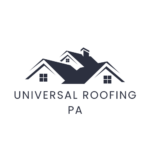When it comes to home renovation, the excitement often collides with the reality of budgeting. It’s easy to dream big—new countertops, a spa-like bathroom, and maybe even a secret door to Narnia. But without a solid budget template, those dreams might just lead to financial nightmares.
Home Renovation Budget Template
Home renovation requires careful financial planning. A budget template simplifies tracking costs while managing project goals.
Importance of Budgeting in Renovations
Budgeting in renovations minimizes the risk of overspending. It creates clarity on where funds are allocated. A homeowner can prioritize essential upgrades by understanding total project costs. Unexpected expenses often arise; thus, budgeting includes contingency funds. Managing finances effectively allows homeowners to achieve their renovation dreams without incurring debt.
Components of a Budget Template
A comprehensive budget template consists of several key components. Start with a detailed list of project items. Include estimates for materials and labor costs in this list. Next, allocate funds for permits and inspections as required by local regulations. Separating expenses into categories like essential and optional enhances organization. Lastly, tracking actual expenses against estimates helps assess budget performance. Regularly reviewing this information allows for informed decisions throughout the renovation process.
Creating Your Home Renovation Budget Template

Creating a budget template for home renovation ensures a structured approach to financial management. This template simplifies keeping track of costs and aligning expenses with renovation goals.
Gathering Necessary Information
Gathering necessary information is the first step in constructing a budget template. Identify the scope of the renovation project by determining specific tasks, such as kitchen upgrades or bathroom remodeling. Research local regulations to find permit requirements and associated costs. Use online resources to compare material prices and labor expenses in the area. Seek quotes from contractors to obtain accurate estimates. Document each piece of information, as it aids in building a comprehensive understanding of potential costs.
Estimating Costs Accurately
Estimating costs accurately plays a significant role in the budgeting process. Calculate material costs by listing specific items needed for the renovation, including quantity and price per unit. Factor in labor costs by considering rates from local contractors and the expected time needed for completion. Include expenses for permits and inspections, as they contribute to the overall budget. Identify a contingency fund, typically 10-20% of the total budget, to account for unforeseen costs. Regularly reviewing estimates against actual spending throughout the renovation helps maintain financial alignment.
Customizing Your Budget Template
Customizing your budget template enhances its effectiveness. Tailoring your template to fit specific renovation projects ensures that all financial aspects are accounted for.
Personalizing for Different Projects
Homeowners should adjust their budget template based on the type of renovation project. For kitchen upgrades, include costs for appliances, cabinetry, and fixtures. If tackling a bathroom renovation, consider plumbing and tile expenses as primary budget categories. Living room renovations might focus on furniture and flooring. Every project comes with unique requirements; thus, listing specific items and corresponding costs leads to better financial management. Adapting your budget template allows for focused tracking of estimates versus actual spending.
Tools and Software for Budgeting
Several tools and software streamline the budgeting process. Applications like Microsoft Excel or Google Sheets provide customizable templates, ensuring easy tracking of costs. Budgeting tools such as Mint and YNAB (You Need A Budget) offer additional features for organizing expenses and setting financial goals. Using dedicated renovation apps can also simplify budgeting by integrating estimates and timelines into one platform. Homeowners should explore options that best suit their project requirements for effective financial oversight. Choose tools that encourage regular updates to maintain budget accuracy.
Tips for Effective Budget Management
Effective budget management plays a crucial role in successful home renovations. These tips enable homeowners to stay on track financially while pursuing their renovation goals.
Tracking Expenses
Tracking expenses ensures homeowners understand their financial commitments. Regularly documenting costs against estimates clarifies spending patterns. Detailed records help identify areas where overspending could occur. Use tools, such as spreadsheets or budgeting software, to simplify this process. Each documented expense contributes to a clearer financial picture, making it easier to adjust plans if necessary. Set a specific day each week or month to review spending trends. Doing so fosters ongoing awareness and adherence to the original budget.
Adjusting the Budget as Needed
Adjusting the budget becomes essential during renovations when unexpected costs arise. Flexibility allows homeowners to accommodate necessary changes without straining finances. Prioritize essential upgrades while reallocating funds, always keeping the overall project in focus. Whenever a significant expense appears, evaluate its impact on the overall budget. Regular reviews create opportunities to reassign funds to where they’re most needed. Ensuring that all adjustments align with project goals maintains financial stability. Adaptability plays a key role in managing home renovation budgets effectively.
Conclusion
A well-structured home renovation budget template is an invaluable tool for any homeowner. It not only helps in tracking expenses but also provides clarity on financial commitments. By customizing the template to fit specific renovation needs and regularly reviewing spending, homeowners can navigate the renovation process with confidence.
Effective budgeting allows for prioritization of essential upgrades while accommodating unexpected costs. Utilizing tools and software can further enhance budget management, making it easier to stay on track. With a solid budget in place, homeowners can turn their renovation dreams into reality without the stress of financial mismanagement.

